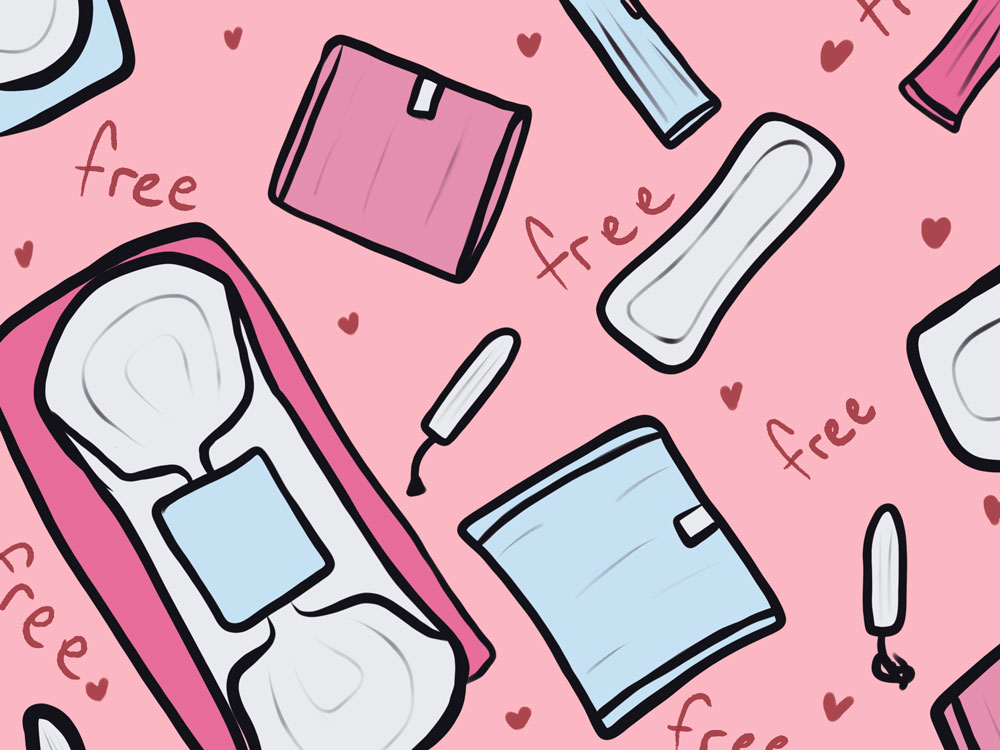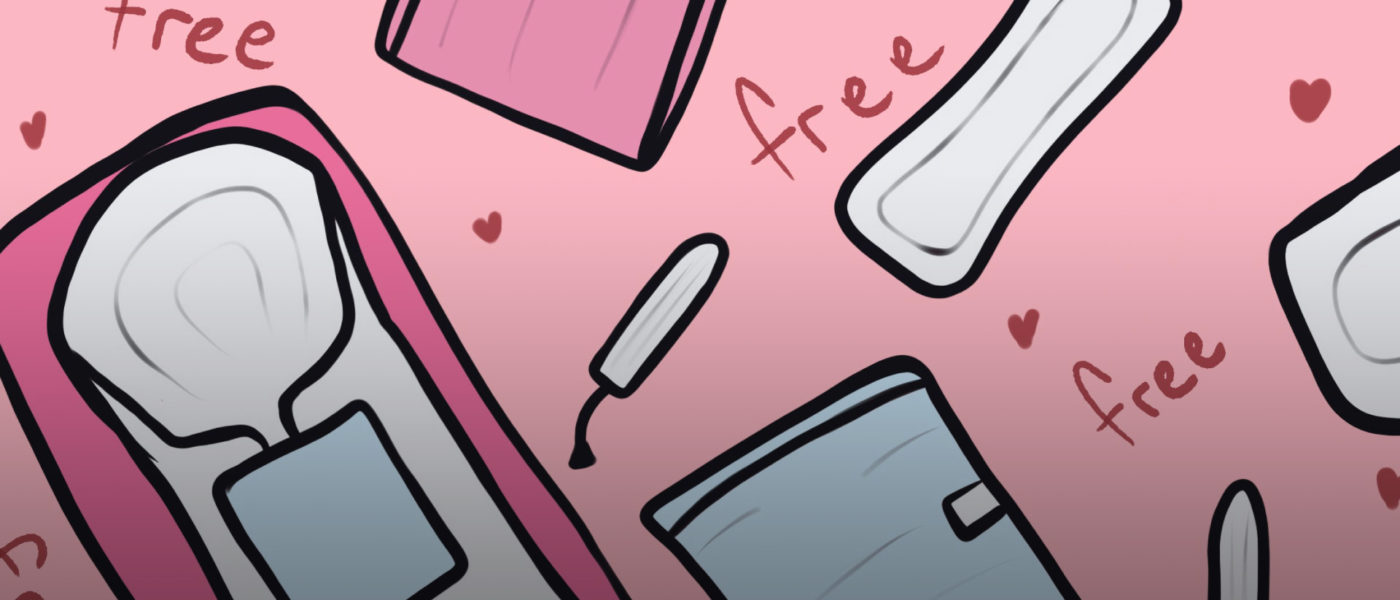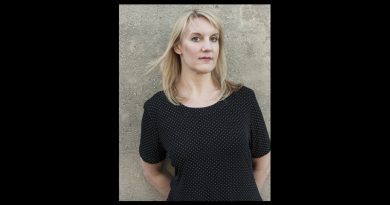Menstrual Products Are A Necessity, Not A Luxury
Menstrual products such as pads, tampons, liners and menstrual cups should be free because they are medical necessities, not luxuries.
Two weeks ago, I was washing my hands at a Miami Dade College restroom and couldn’t help but notice a locked-up safe with the word tampon and 25 cents stamped on it.
I was enraged to know that if someone needed a tampon and didn’t have 25 cents at their disposal, they wouldn’t be able to get one. Sometimes the machines aren’t even stocked.
Sadly, that is the reality at most schools.
At other universities and high schools, women have to constantly rely on someone they know to provide them with a pad during class if they don’t have one.
Imagine living in a world where you’d have to pay 25 cents every time you used toilet paper in a public restroom.

Access to free period products would alleviate some of the economic strain that having a period creates.
On average, monthly expenses for period products range from $7 to $20, depending on the woman’s flow, chosen brand and quantity of the product.
That is excluding pills such as Advil or Ibuprofen, packs of tea bags and heating pads to manage period cramps.
And the reality is much different for homeless women. They are forced to choose between using the money they have to buy food or menstrual products.
That often leads them to resort to using rags, cardboard, mattress stuffing, banana leaves and feathers during their period. That can also eventually lead to urinary and genital infections, which could cost them a lot more money to resolve.
The lack of access to menstrual supplies can also have an impact on education because it can cause students to miss class.
No one deserves to miss school, work or basic activities because they are unable to acquire the necessities they need.
In an ideal world, the United States would adopt the bill Scotland passed in 2020. It provides free menstrual products to anyone who needs them, making them the first country to pass such a bill.
Although 23 states in the U.S. don’t tax menstrual products—such as Alaska, Florida, New York and Ohio—there are 27 that still have the tampon tax.
But the fight continues to completely eliminate the expense, not just the tampon tax.
As a community, we should also contribute and join organizations that distribute period products to homeless women and schools.
Keep in mind that period rights are human rights. All menstruators, whether in school, prison, jail, work or public places deserve accessible period products.




